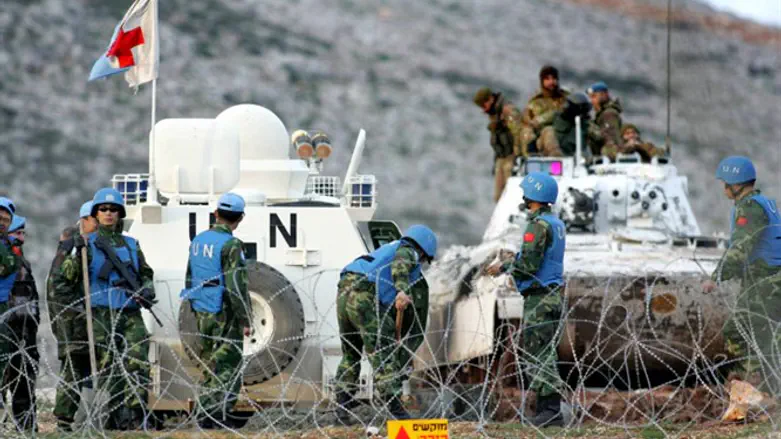
The UN Security Council on Thursday extended the mandate of the UN peacekeeping force in southern Lebanon known as UNIFIL until August 31, 2019, The Associated Press reports.
At the same time, the Council warned that violations of the ceasefire agreement between Lebanon and Israel could lead to "a new conflict that none of the parties or the region can afford".
Council members urged "all parties" to exercise "maximum calm and restraint and refrain from any action or rhetoric that could jeopardize the cessation of hostilities or destabilize the region."
UNIFIL works to implement Security Council Resolution 1701, which ended the Second Lebanon War in 2006.
According to the resolution, Hezbollah must not be allowed operate in southern Lebanon and the entire area of southern Lebanon must be free of any armed personnel and weapons other than those of the Government of Lebanon.
UNIFIL was originally created to oversee the withdrawal of Israeli troops from the area. The mission was expanded after the 2006 war between Israel and the Hezbollah terrorist group so that peacekeepers could deploy along the Lebanon-Israel border, to help Lebanese troops extend their authority into their country's south for the first time in decades.
The French-drafted resolution approved on Thursday again urged all countries to enforce a 2006 arms embargo and prevent the sale or supply of weapons to any individual or entity in Lebanon not authorized by the government or UNIFIL, an implicit criticism of the suppliers of weapons to Hezbollah.
Rodney Hunter, the U.S. Mission's political coordinator, told the council that Hezbollah, with Iran's help, "has grown its arsenal in Lebanon in direct threat to peace" along the boundary with Israel "and the stability of all of Lebanon."
Hunter said 12 years after the council imposed an arms embargo, "it is unacceptable that Hezbollah continues to flout this embargo, Lebanon's sovereignty, and the will of the majority of Lebanese people."
Last year, Israel's Ambassador to the United Nations, Danny Danon, presented new information to the Security Council revealing that the Hezbollah terrorist group had established a series of outposts along the border with Israel under the guise of the agricultural NGO “Green Without Borders”.
UNIFIL later rejected that proof, saying that “Green Without Borders” members have planted trees in the area, but it "has not observed any unauthorized armed persons at the locations or found any basis to report a violation of resolution 1701".
Last August, when the UN Security Council renewed UNIFIL’s mandate, it approved an updated resolution regarding the mandate of the force, requiring to expand its reports to the Security Council and take deliberate action against Hezbollah’s violations.